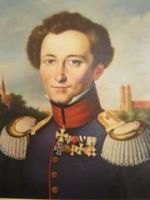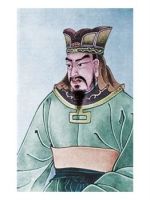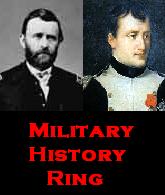Click here for Clausewitz vs. Sun Tzu Round I.
It’s hard to imagine that the two most influential writers on war, Sun Tzu and Clausewitz, never discussed the part seaborne operations should play during a conflict. Perhaps in Sun Tzu’s case it is more understandable, being that he wrote from an ancient perspective, when things like global maritime trade were not en vogue. In Clausewitz’s case, the omission is nearly inexcusable. By the time of his writing trade and battle on the high seas were certainly not novelties and were indeed an integral part of the economic and military functioning of every civilized nation. It’s true, Germany was never known as a sea power, but to completely omit any mention of the uses of a navy in his writing is quite glaring.
Can, then, the theories of these two men be applied to war on the oceans and if so, whose translate most seamlessly? I believe that the ideas of Clausewitz are most easily transferred to war at sea. Sun Tzu claimed that if all his theories were executed that the general could basically win all the time. Clausewitz understood the unpredictability of war, the “friction”, and that even the best laid plans are often meaningless once the fighting starts. The idea of the fog of war I think is especially apt when talking about naval warfare not only in the sense that the chaos of the battlefield causes confusion, but literally fog itself. Sun Tzu did acknowledge the difficulty weather can cause for military operations, but this is especially true on the ocean. A quick look at history makes this clear. The Spanish Armada of 1588 was already having a difficult time fighting the English ships when the “Protestant wind” blew and scattered the beleaguered fleet.
Other ideas of Clausewitz, and even some of Sun Tzu, can be applied to war at sea. The notion of strength and, in particular strength at the decisive point, can be useful. Also, the morale of the troops, or sailors, is immeasurably important. Ships crews were often pressed into service and the specter of mutiny was always something to be concerned with.
Elizabeth I would have best identified with Sun Tzu. I think it could be said that she put into practice the Tzuian notions of attacking the enemies plans and using surprise when her fleet met the Spanish Armada in the English Channel while is was on its way to the Netherlands. Her navy also employed the idea of liquidity and maneuver, using a greater number smaller, faster ships to defeat the Armada.
Clausewitz would most likely have been the best to adept to new technologies. In his own life he witnessed the changes in artillery pieces and the evolution from muzzle to breech loading rifles. In Sun Tzu’s time the technological advances were less dramatic and though he may well have been equal to the task of adjusting his philosophies, Clausewitz, having lived through a time of great technological advances would be better equipped to deal with them.



